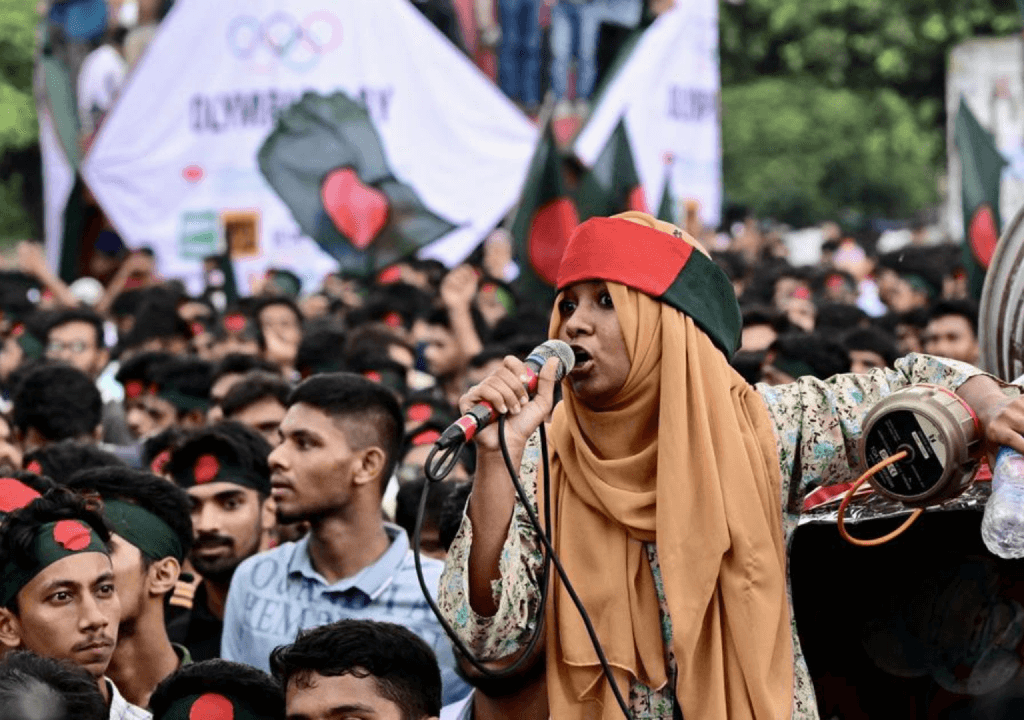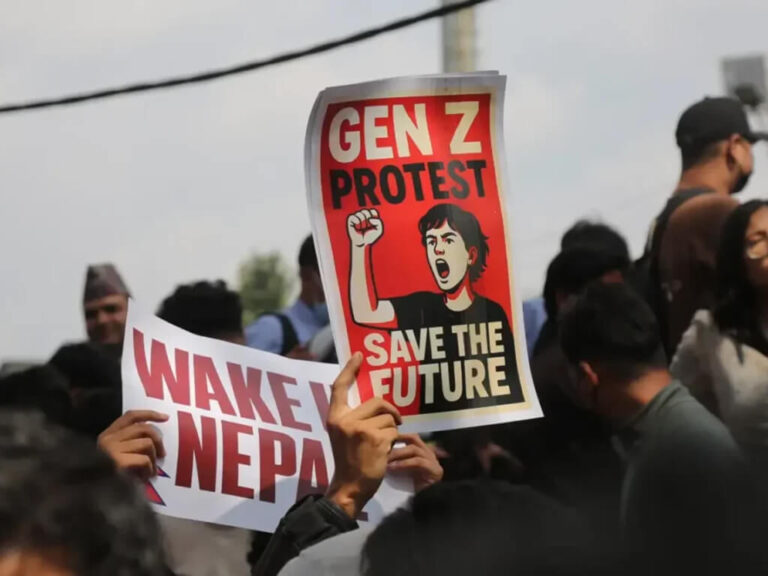Bangladesh is in turmoil as student protests have escalated into riots. The country, notorious for its large population and low living standards, has been experiencing a wave of protests. In its 50 years of existence, Bangladesh has frequently experienced protests and severe government crackdowns that have hindered its development. Combined with a poor economy and high unemployment, these ongoing protests have further deepened the rift between the government and the people.
The latest protests, which began at universities and spread across the state, were against a job quota bill that provided reservations based on the participation of one’s bloodline in the independence movement. The protests turned violent as the government and the ruling party’s student wing chose to confront the movement, which targets the government and the prime minister. The student movement is anticipated to emerge as a significant opposition force against Sheikh Hasina’s government, which has been in power continuously for nearly 15 years.
At least 32 people were killed on Thursday, in addition to the seven killed earlier in the week, and thousands were injured after police fired tear gas into crowds of protesting students. As both government and private properties, including the state television office, were targeted, paramilitary forces were deployed across the country.
Protests first erupted on university campuses across Bangladesh a fortnight ago as tens of thousands of students demanded an end to “Unreasonable and discriminatory quotas” for government jobs. The quotas, which reserve 30% of jobs for family members of veterans who fought in Bangladesh’s war of independence in 1971, were abolished in 2018 but reinstated this month after a court order. The reintroduction of the quotas provoked fury among students, who argue that the job market in Bangladesh is already extremely challenging amid high unemployment, heavy inflation, and a struggling economy. With the private sector diminishing, government jobs have become the most secure and sought-after form of employment, yet are heavily restricted, with 50% already allocated through quotas.
On Monday night, student protests turned violent when police and heavily armed members of the ruling Awami League’s student wing attacked the demonstrators. In Dhaka, police fired tear gas and charged at the protesters with batons, while pro-government groups assaulted them with machetes, bamboo rods, and hockey sticks, injuring thousands. The violence escalated on Tuesday as campuses nationwide became battlegrounds. Hundreds of protesters demanding reform of civil service hiring rules clashed with riot police, who had fired rubber bullets at them. The protesters chased the retreating officers to the headquarters of state television BTV in Dhaka. In their fury, the crowd set fire to the network’s reception building and dozens of vehicles parked outside.
Many blocked major highways and railway lines and broke through police barriers to stage demonstrations across the overcrowded capital city of Dhaka. The new ruling on quotas was paused by the Supreme Court last week, but students have said they will continue protesting until the quotas are permanently overturned. Many political scientists believe the student movement is evolving into a significant opposition force in the country. While Hasina has suppressed Khaleda Zia and Islamist factions in the political sphere, the students now present a formidable challenge to her. Addressing this shift, Hasina has adopted a more aggressive stance. Sheikh Hasina referred to the protesting students using the slur “Razakars”, meaning those who betrayed the nation during the war of independence in 1971, which further worsened the situation.
A job is precious in a country like Bangladesh. There are not many private sector jobs due to low investment, and overpopulation leads to an oversupply of unskilled workers, making labor cheap. Therefore, the only hope for many people is government jobs, which also carry significant social prestige. The quota system is killing this hope and is seen as favoring the ruling party’s interests, with no opposition to challenge it. Student protesters accuse Hasina of authoritarianism, and political scientists believe the current wave of protests is a direct response to prolonged repression under the authoritarian regime of Hasina and her Awami League party, who have ruled continuously since 2009. In January, Hasina won a fifth term in power after an election widely reported as rigged, with tens of thousands of her political opponents jailed. The anger against the government can be seen as opposition to favoritism, authoritarianism, and lack of opportunities.








